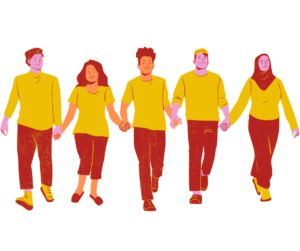Memory plays a pivotal role in poker, a game where past hands can provide valuable insights into players’ strategies and tendencies. However, relying solely on memory can be misleading due to its inherent limitations and biases. This analysis explores why your poker memory might not always be a reliable source and how you can compensate for its shortcomings.
Limitations of Human Memory
Human memory is fallible and can be distorted by various cognitive biases that affect how past events are recalled. Here’s why relying on memory in poker can be problematic:
- Selective Recall: Players often remember unusual or emotionally charged outcomes more vividly than mundane ones. This can skew perception and lead to overestimating the frequency of certain events, such as bad beats or successful bluffs.
- Confirmation Bias: There is a natural tendency to remember information that confirms pre-existing beliefs and disregard information that contradicts them. In poker, this might mean remembering all the times a strategy worked and forgetting the times it didn’t.
- Recency Effect: Recent events are typically easier to recall than older ones. This can Baji999 Login cause players to give undue weight to recent hands and potentially ignore longer-term patterns of play.
Enhancing Memory Reliability
While memory is inherently flawed, there are strategies to enhance its reliability in the context of poker:
- Note-Taking: Keeping detailed notes during sessions can help counteract the weaknesses of memory. This includes tracking opponents’ tendencies, betting patterns, and any deviations from their normal play.
- Review and Analysis: Regularly reviewing past hands and sessions, ideally through video or transcript records, allows for a more objective analysis than relying on memory alone. This can help identify biases and misremembered details.
- Mental Rehearsal: Practicing hands mentally or discussing them with peers can reinforce memory and aid in the accurate recall of strategic insights.
Cognitive Biases in Poker
Understanding and mitigating cognitive biases can significantly improve decision-making processes in poker:
- Anchoring Bias: This occurs when players rely too heavily on the first piece of information they receive. In poker, the first hand played can disproportionately influence perceptions of an opponent, which might not be accurate.
- Dunning-Kruger Effect: Less skilled players may overestimate their abilities, a misjudgment often based on flawed memories of past games. Recognizing this can help in realistically assessing one’s skills and the effectiveness of different strategies.
- Gambler’s Fallacy: The mistaken belief that independent events in poker are interconnected can lead to incorrect assumptions based on past outcomes, such as expecting to win after a losing streak.
The Role of Technology in Supporting Memory
Technological tools can supplement human memory and provide a more robust framework for decision-making:
- Poker Tracking Software: Tools like PokerTracker and Holdem Manager offer empirical data on thousands of hands, providing a factual base that helps overcome the inaccuracies of memory.
- AI and Machine Learning: Advanced algorithms can analyze past game data and suggest optimal strategies, reducing the reliance on potentially faulty human memory.
Conclusion
While memory is an invaluable resource in poker, it is not wholly reliable due to inherent limitations and biases. By acknowledging these limitations and employing strategies such as note-taking, session reviews, and the use of technology, players can mitigate the risks associated with faulty memories. Ultimately, blending remembered experiences with objective data and analysis is the best approach to making informed decisions in poker, ensuring that memory serves as a helpful tool rather than a deceptive hindrance.










